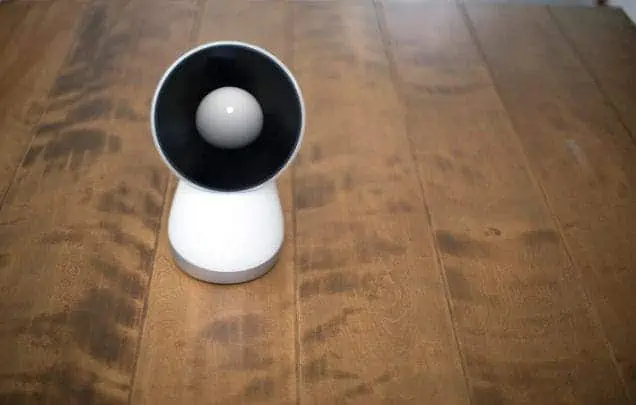
Mike Pence on Leadership and the Future of the Republican Party
Former US Vice President Mike Pence looks back on the events of January 6 2021, his final days in office with President Trump and his…
Thought Leader: Mike Pence

Designed by the world’s foremost social robotics expert, MIT’s Cynthia Breazeal, Jibo looks like a cross between HAL 9000 and Eve from Wall-E. The robot seeks to become the first in a line of truly intelligent robot helpers that not only assist the family with chores, but become part of it as well. Is this cute, crawling white desktop nothing more than parts and gears or will it genuinely reach its objective? This a debate I’d like you, the reader, to participate in.
Its makers market Jibo as not just a three axis motor or smart software – he’s part of the family! Manufactured emotions aside, Jibo’s hardware does indeed sound impressive, nevertheless. Only 11 inches (28cm) tall, with a 6-inch base, Jibo features a 5.7-inch 1980×1080 touchscreen, complete with stereo cameras, speakers and recorders. A social machine is nothing without dynamic software, and if you thought Siri was interesting, wait till you see what Jibo can do.
It’s motion and face recognition algorithm allows Jibo to tell who you are and what you’re doing, then proactively help or entertain you. If Jibo is near you when you’re cooking supper, for instance, he’ll ask you if you need any more groceries and, if given the go, will place an order online for you or will help you with recipes. It can also take family pictures and interact with its members, which it can recognize. Designed as a family bot to the greatest extent, Jibo can even tell bedtime stories in an interactive fashion that will delight children. The real caveat, in fact, lies in his ability to sustain a conversation. Unlike Siri, Jibo goes the extra mile and continues the discussion after you ask him a question or, more importantly, proactively initiates the conversation. Check out the presentation video below.
Is Jibo as cool as Breazeal and his makers would have us think? I can’t help remembering how Michio Kaku reported on a smart Japanese robot that, on video at least, was really smart, when in fact behind the scenes it would bump into people in all the wrong places and could only perform a series of strictly defined tasks – basically useless. Is Jibo the same? Maybe not. The fact that its makers have designed the software architecture using Linux and that there’s a developers’ SDK platform that programmers can use to enhance Jibo’s features and share these with other users makes Jibo much more robust. For instance, Jibo comes complete with storytelling functions, but you might be able to buy an app that helps the kids with homework and so on.
If Jibo is a success, it will most likely become the first in a series of family-helping robots. At the moment, it sells for $500 and you can order one by contributing to the official Indiegogo crowfunding campaign.
Mike Pence on Leadership and the Future of the Republican Party
Former US Vice President Mike Pence looks back on the events of January 6 2021, his final days in office with President Trump and his…
Thought Leader: Mike Pence
Marc Short on U.S. Investment in Critical Minerals
Why do critical minerals matter now? Marc Short explains how U.S. investment in critical minerals fits into a broader strategy around economic security, manufacturing, and…
Thought Leader: Marc Short
Marc Short on AI Policy and the Government’s Role in Chip Technology Investment
On CNBC, Marc Short breaks down the role of AI policy and how government investment is shaping the future of chip technology. A former Chief…
Thought Leader: Marc Short

